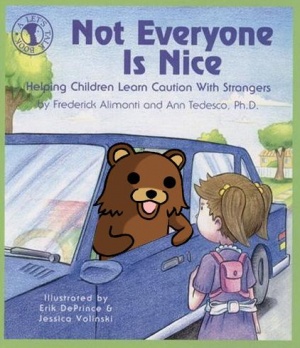One of our staff members is contributing considerably to a News Archiving service at Mu. Any well educated (Masters, PhD or above) users who wish to make comments on news sites, please contact Jim Burton directly rather than using this list, and we can work on maximising view count.
Debate Guide: "Stranger danger" or "It could be anyone"

The first myth (popularized in the 50s and 90s) is still viscerally potent. It is slowly being replaced with the second (popularized in the 70s, 80s and again from the 10s onward).
Protecting a child against sexual predators is a matter of constant vigilance in every public place. Our children are only safe in our homes!
Assuming that each act involving the "sexualization" of a child or minor is an abomination, this assumption is still misguided. Quite a large majority of reported cases involve someone who is known to the child or minor, with their own family being the main "threat". Any reputable source of criminal data can back this up.
In the 21st century, only crank human trafficking conspiracy theorists would seriously dispute that it is much more likely a child will be killed by a motorcar than killed by an abductor, or crazed and violent rapist.
Absolutely no one can be trusted with our children. The offenders are everywhere, and we have no way of distinguishing them from teachers, relatives or God forbid, even a respected local priest!
Following the amplification of panic, this newer myth is even more pernicious and flawed. It appears that both have been abused by governments and news agencies to incite fear in society.
Firstly, the statistics actually indicate that families are by far the biggest "threat" to the welfare of their children. In this sense, it would be more reasonable to distrust oneself or ones partner. As the long list of adverse consequences tells us, there is no workable, "pro-family" way of protecting children from such rare threats as violent molesters. What little "positive" impact superficially rational provisions may have, the result has been a generation of fearful, physically averse minors who now fear even the devices being used to propagandize them.[1] These children are fast becoming the young adults we now see in society at large; a political and generational liability in and of themselves.
For balance, it should lastly be mentioned there are also registries and other provisions in some countries that allow people to identify offenders. These have uniformly failed at great expense, increasing recidivism by enforcing punitive restrictions and leading to serious unintended consequences not limited to multiple suicides, vigilante killings and registry-abetted murders.